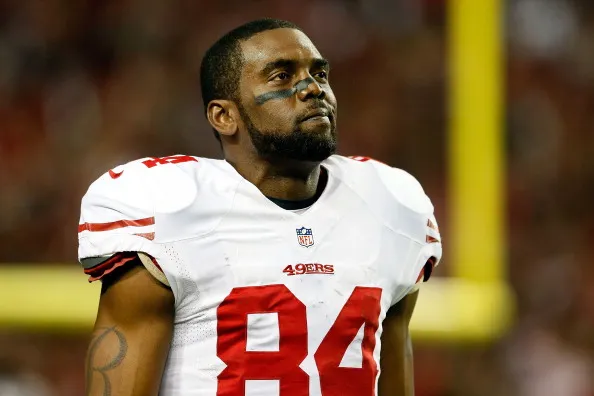When you think about the NFL, the excitement of game day and roaring stadiums likely come to mind. However, there is another side to a player’s career that often sparks curiosity – NFL retirement. What happens when an NFL player hangs up the cleats for good?
In this guide, we will explore everything from the average retirement age to the benefits they receive and what many players pursue after leaving the field. This is your complete guide to understanding NFL retirement, broken down clearly and thoughtfully.
What is the NFL Retirement Age?
Retirement in the NFL is not quite like retirement in other professions. Most players leave the game far earlier than the average working American. This section breaks down the typical retirement age and the reasons behind it.
Average Age of Retirement
The average NFL player retires by the age of 26 to 30. Some positions, like running backs, see even shorter careers due to the physical toll of the role. Linebackers, wide receivers, and cornerbacks also often retire early.
Why NFL Careers Are Short?
NFL is a high-impact sport, and injuries are common. The constant physical stress, mental pressure, and risk of long-term health issues contribute to early retirements. Moreover, team decisions, contracts, and competition with younger talent play a role.
Retirement by Position
Certain positions naturally have longer careers. For example, quarterbacks and kickers often stay in the league into their late 30s or even early 40s. Their roles are less physically demanding, allowing for longer tenure.
NFL Pension and Retirement Benefits
NFL players are eligible for a range of retirement benefits if they meet specific criteria. In this section, we will look at what kind of financial support retired players receive and how it works.
NFL Pension Plan Overview
The NFL pension plan kicks in for players who have played at least three credited seasons. These players can start receiving pension payments starting at age 55. The more seasons a player has under their belt, the higher the payout.
- 401(k) and Second Career Savings Plan: In addition to the pension, players can invest in a 401(k)-style plan. The NFL matches player contributions up to a certain limit. There is also a Second Career Savings Plan, which rewards long-term commitment by contributing additional funds.
- Severance Pay: Players who are released from teams may be eligible for severance pay. This is based on their years of service and is paid out shortly after separation.
- Health Reimbursement Account: Retired NFL players can also benefit from health reimbursement accounts that help cover medical expenses. This is a crucial component, especially given the toll football can take on the body.
How the NFL Retirement Process Works?
Retiring from the NFL involves more than just saying goodbye. There is a formal process to follow, and this section will walk you through it step by step.
- Official Notification: A player who decides to retire must notify their team and the NFL in writing. The league then places them on the reserve/retired list, which means they are no longer part of the active roster.
- Contract and Financial Implications: Once a player retires, their contract becomes inactive. However, if they have received a signing bonus that has not been fully accounted for, they might have to return a portion of it. Teams also regain salary cap space.
- Returning from Retirement: Some players choose to come out of retirement. If they do, their rights still belong to the team they were under contract with at the time of retirement unless they are released.
Life After NFL Retirement – What Do Players Do Next?
Retirement does not mean the end of productivity. Many former NFL players go on to have meaningful second careers. Here are some of the most common and inspiring paths they choose.
- Coaching and Football-Related Roles: Many players remain connected to football through coaching, mentoring, or working as analysts. Their experience on the field provides valuable insights that translate well into these roles.
- Business Ventures: Some retired players start their own businesses or invest in existing ones. From restaurants to tech startups, the business world attracts many NFL retirees looking to put their resources and reputation to good use.
- Media and Broadcasting: Sports networks often welcome former players as commentators or analysts. Their firsthand knowledge of the game makes them valuable voices in sports media.
- Charity and Community Work: Giving back becomes a calling for some. Many establish or contribute to charitable foundations, using their platform to create positive change in their communities.
- Education and Personal Development: Retirement offers the time and space to pursue education. Some former players return to college, earn degrees, or explore entirely new fields they are passionate about.
Challenges Faced by Players After NFL Retirement
While NFL retirement offers new opportunities, it also presents challenges. This section provides an honest look at what players often face once they leave the league.
Physical Health Issues
Years of physical strain can lead to chronic injuries or conditions. Joint problems, concussions, and other ailments can affect quality of life and require long-term care.
Mental Health and Identity Struggles
Leaving behind the game can lead to emotional challenges. Players often struggle with identity, depression, or a loss of purpose after spending years focused solely on football.
Financial Mismanagement
Despite high earnings, some players face financial difficulties post-retirement due to poor investments, lack of planning, or overspending during their careers.
Adjusting to a New Routine
The structure of daily training, games, and team activities is suddenly gone. Retired players often have to create a new routine and redefine their goals.
Resources and Support for Players After NFL Retirement
To address these challenges, various programs and organizations offer support. Here is how retired players can access help and resources to navigate their post-football life.
NFL Player Care Foundation
This organization provides financial and medical assistance to former players in need. They offer grants, screenings, and counseling services.
The Trust (Powered by the NFLPA)
The Trust is a well-known initiative that offers health and wellness services, career transition help, and education support to retired players.
Career Transition Programs
Several programs are designed to help players explore new careers through training, education, and internships. These tools aim to ensure a smooth and successful transition.
Peer Support Networks
Sometimes, just talking to someone who has been through it can help. Peer support networks offer a space for former players to share experiences and advice.
Final Thoughts
NFL retirement is not just an end; it is the beginning of a new chapter. From early retirement age to the benefits and challenges that come afterward, understanding this journey helps you appreciate the full scope of a football player’s career.
Whether you are a fan, a young athlete dreaming of the league, or someone simply curious, we hope this guide gave you clarity on what life looks like after the final whistle. Retirement in the NFL is complex, but with the right support, it can also be full of potential.



